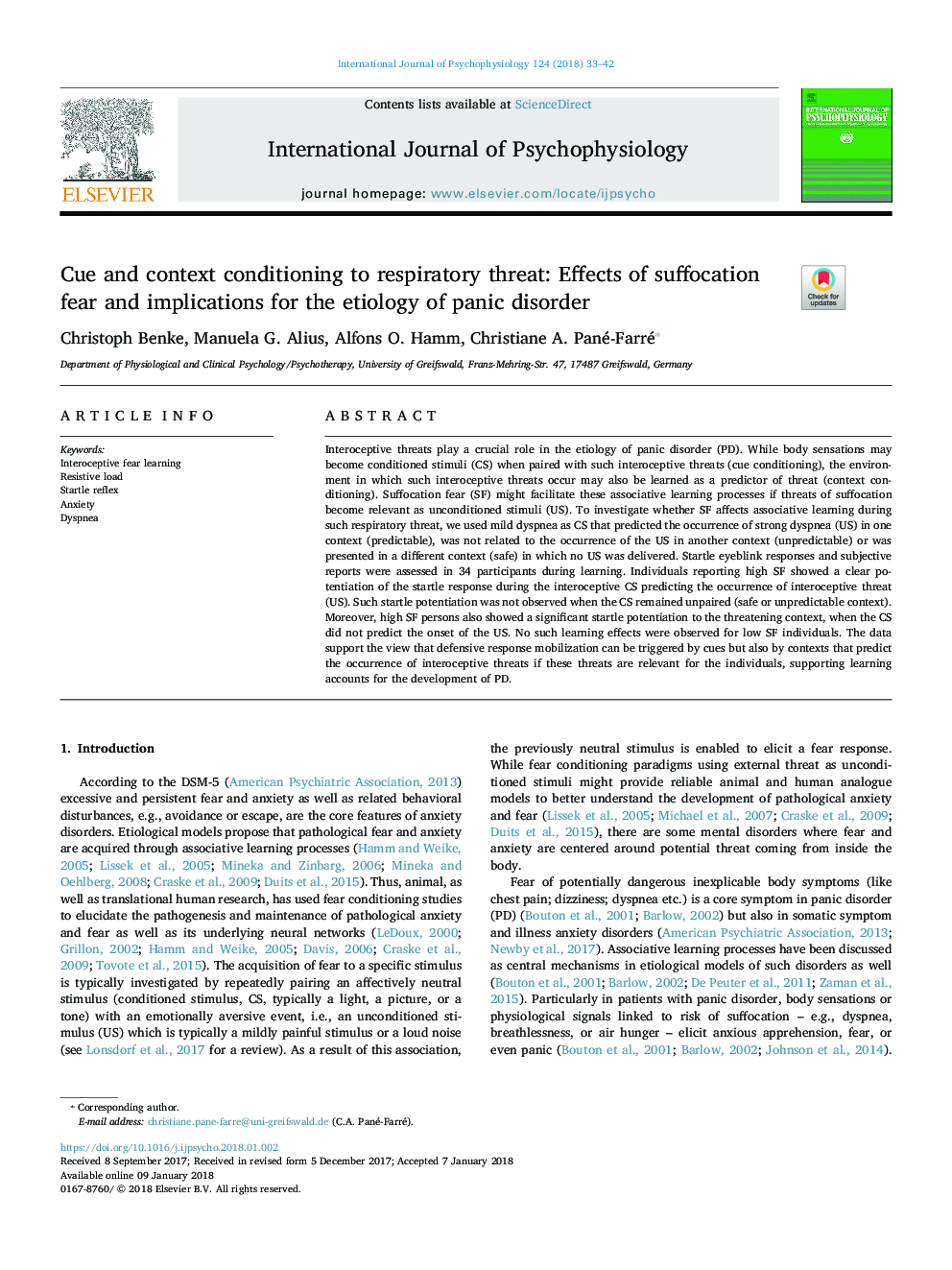| کد مقاله | کد نشریه | سال انتشار | مقاله انگلیسی | نسخه تمام متن |
|---|---|---|---|---|
| 7294885 | 1474372 | 2018 | 10 صفحه PDF | دانلود رایگان |
عنوان انگلیسی مقاله ISI
Cue and context conditioning to respiratory threat: Effects of suffocation fear and implications for the etiology of panic disorder
ترجمه فارسی عنوان
تهدید و تهدید به تنفس: تأثیر ترس خستگی و پیامدهای آن برای علت اختلال هراس
دانلود مقاله + سفارش ترجمه
دانلود مقاله ISI انگلیسی
رایگان برای ایرانیان
موضوعات مرتبط
علوم زیستی و بیوفناوری
علم عصب شناسی
علوم اعصاب رفتاری
چکیده انگلیسی
Interoceptive threats play a crucial role in the etiology of panic disorder (PD). While body sensations may become conditioned stimuli (CS) when paired with such interoceptive threats (cue conditioning), the environment in which such interoceptive threats occur may also be learned as a predictor of threat (context conditioning). Suffocation fear (SF) might facilitate these associative learning processes if threats of suffocation become relevant as unconditioned stimuli (US). To investigate whether SF affects associative learning during such respiratory threat, we used mild dyspnea as CS that predicted the occurrence of strong dyspnea (US) in one context (predictable), was not related to the occurrence of the US in another context (unpredictable) or was presented in a different context (safe) in which no US was delivered. Startle eyeblink responses and subjective reports were assessed in 34 participants during learning. Individuals reporting high SF showed a clear potentiation of the startle response during the interoceptive CS predicting the occurrence of interoceptive threat (US). Such startle potentiation was not observed when the CS remained unpaired (safe or unpredictable context). Moreover, high SF persons also showed a significant startle potentiation to the threatening context, when the CS did not predict the onset of the US. No such learning effects were observed for low SF individuals. The data support the view that defensive response mobilization can be triggered by cues but also by contexts that predict the occurrence of interoceptive threats if these threats are relevant for the individuals, supporting learning accounts for the development of PD.
ناشر
Database: Elsevier - ScienceDirect (ساینس دایرکت)
Journal: International Journal of Psychophysiology - Volume 124, February 2018, Pages 33-42
Journal: International Journal of Psychophysiology - Volume 124, February 2018, Pages 33-42
نویسندگان
Christoph Benke, Manuela G. Alius, Alfons O. Hamm, Christiane A. Pané-Farré,
